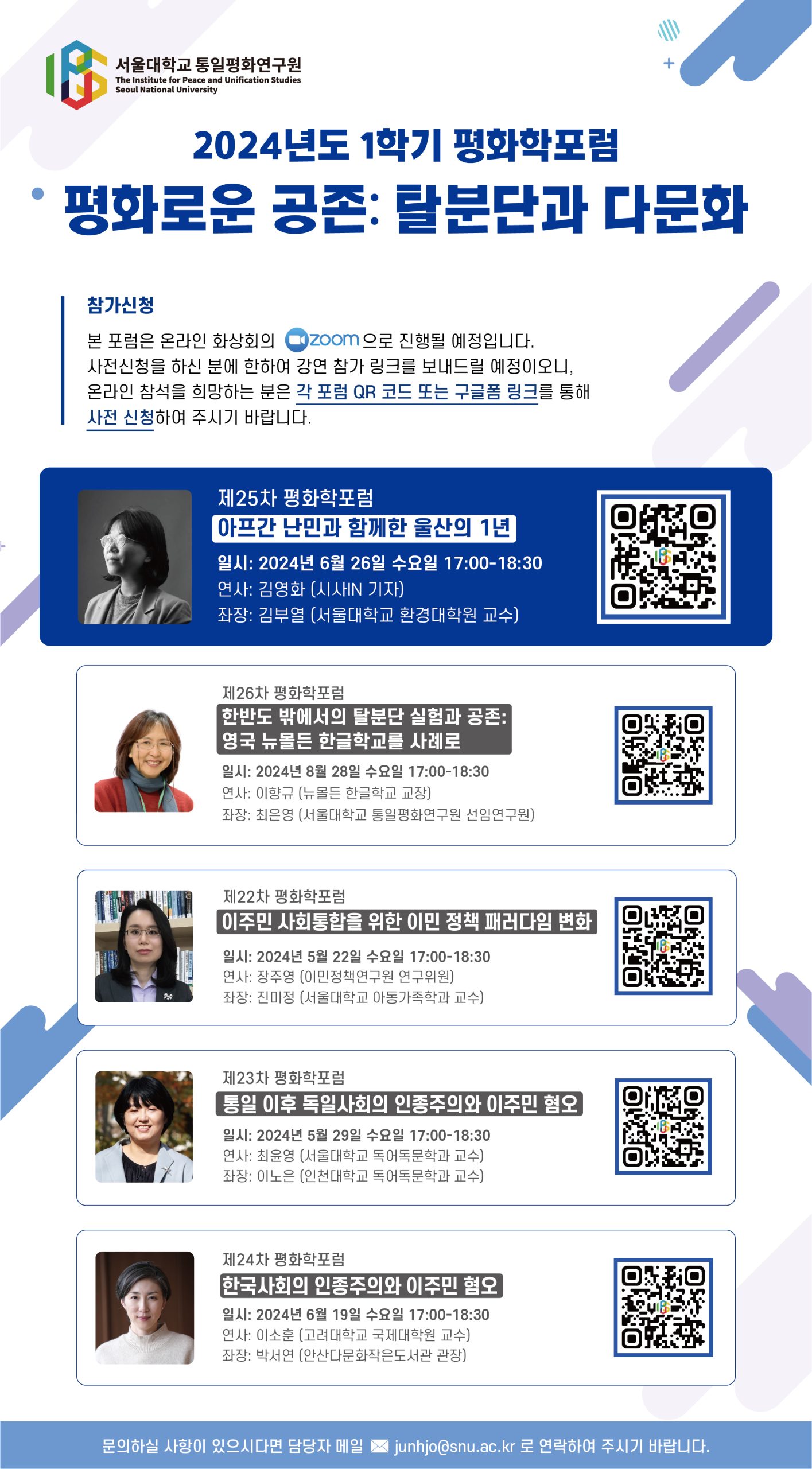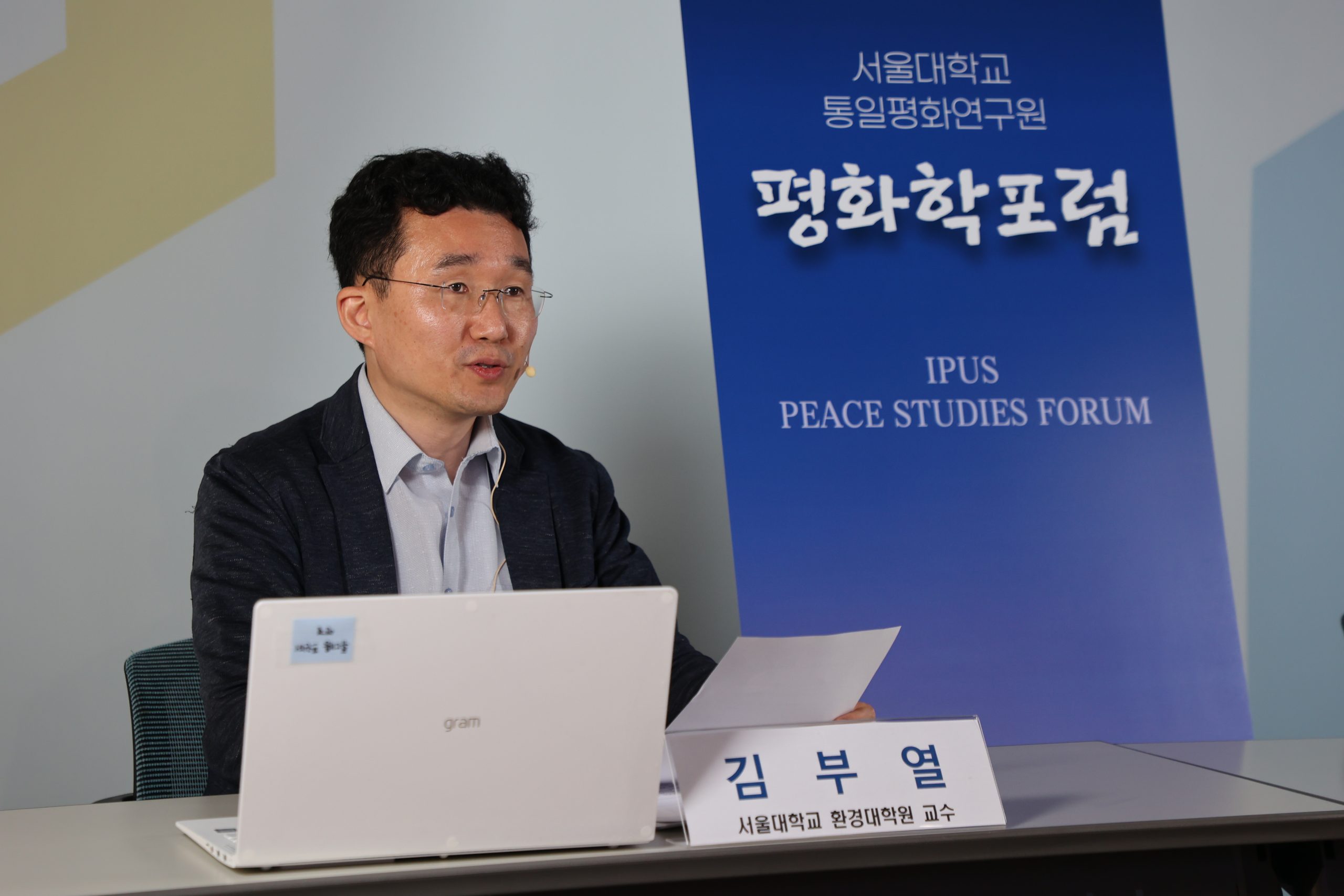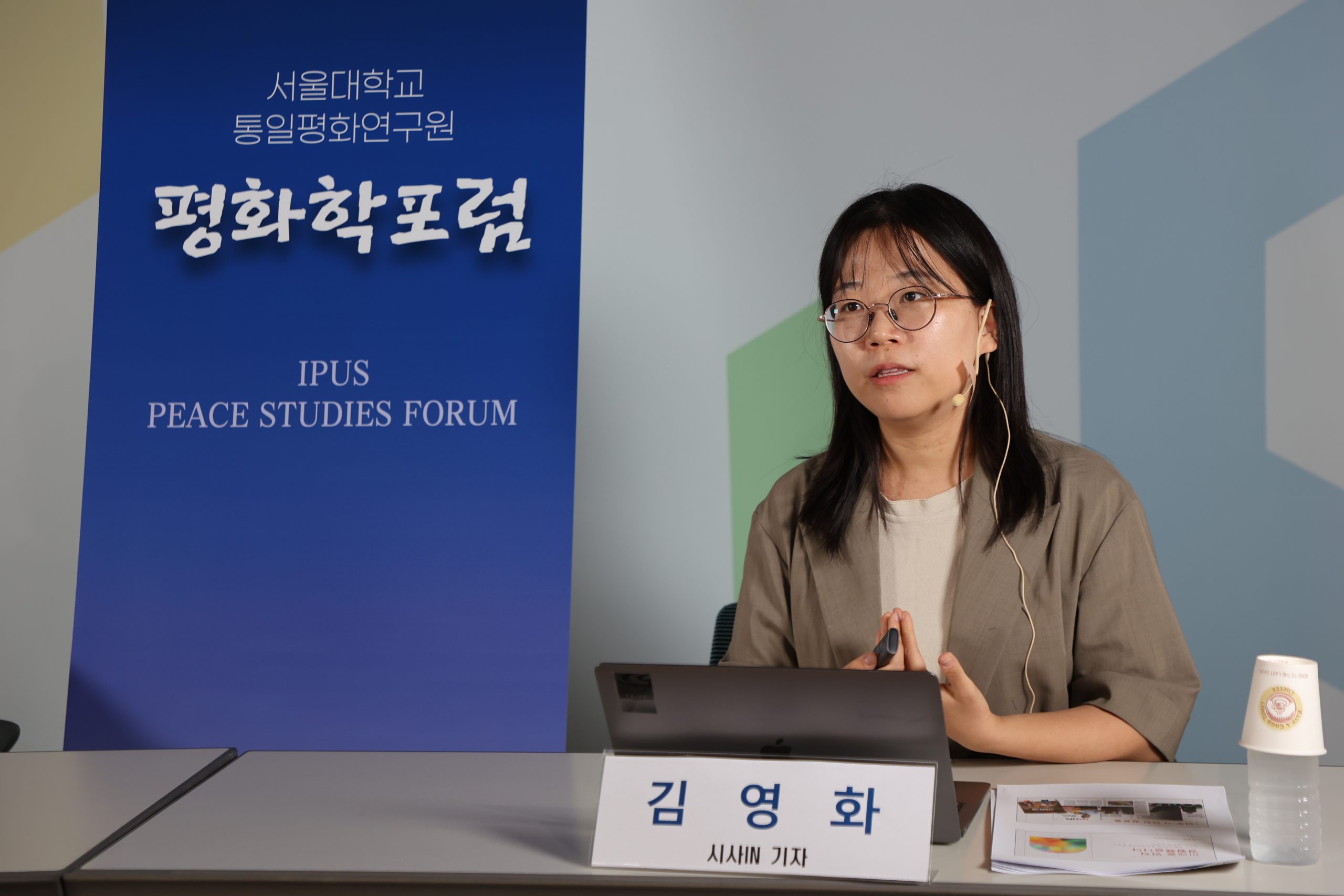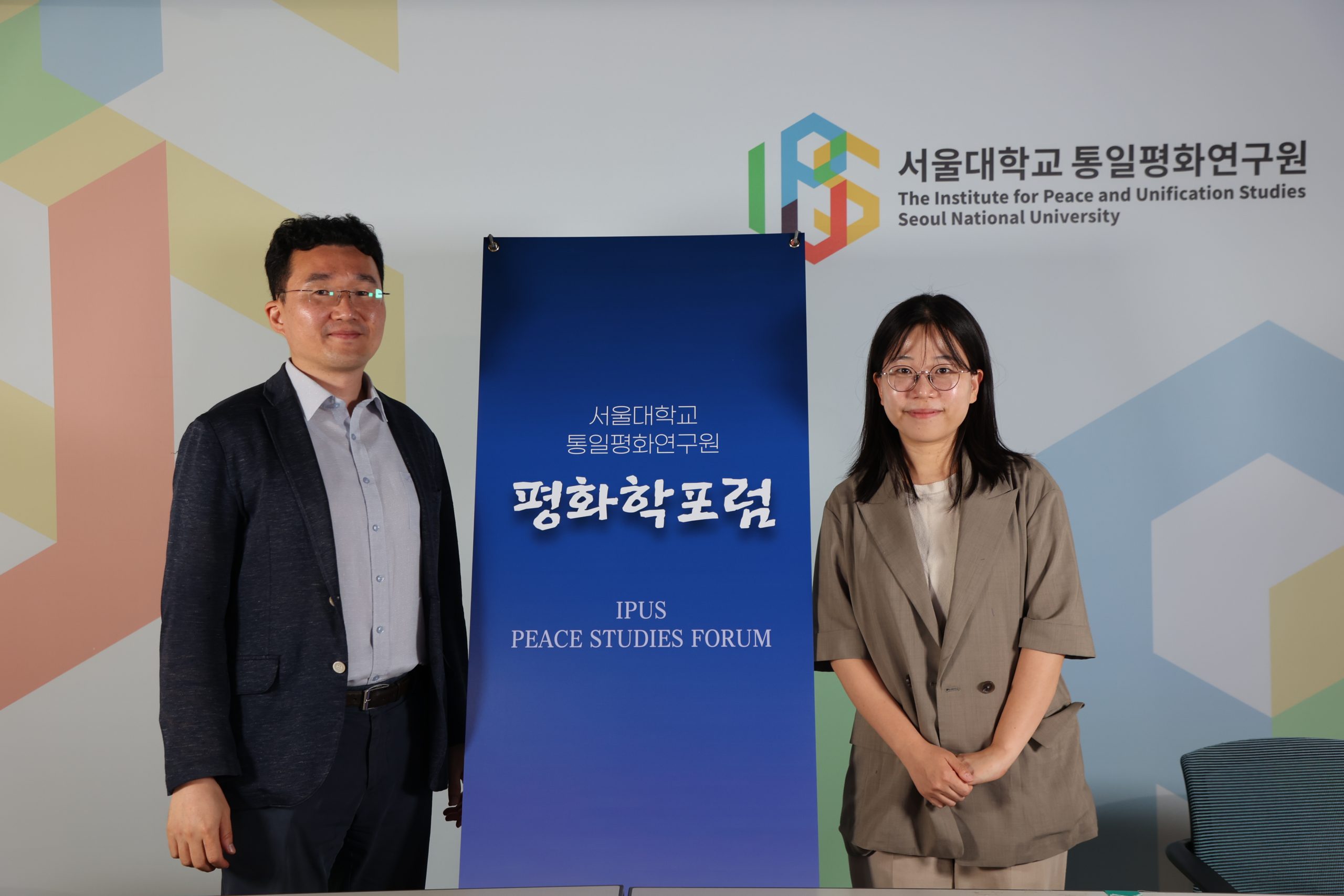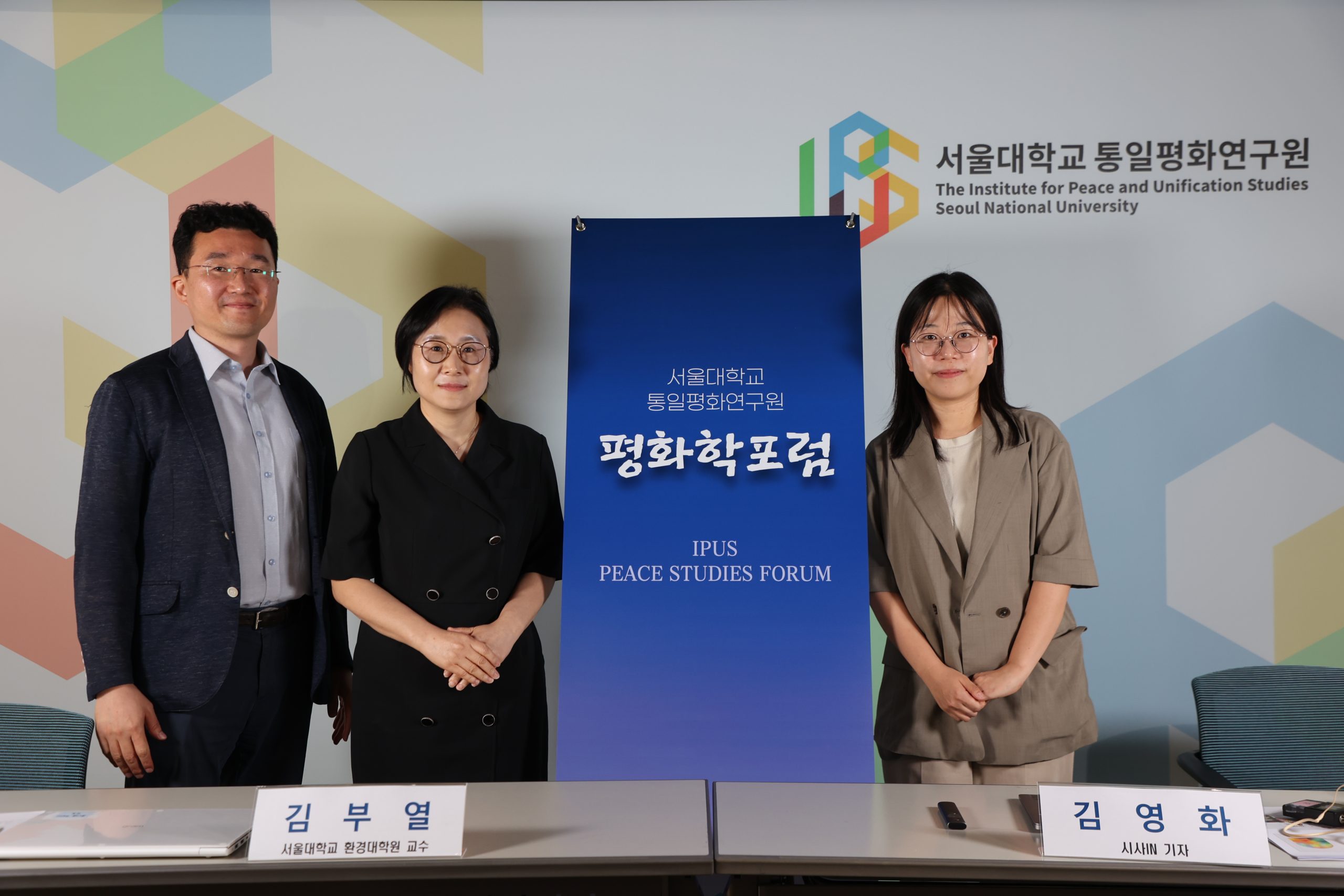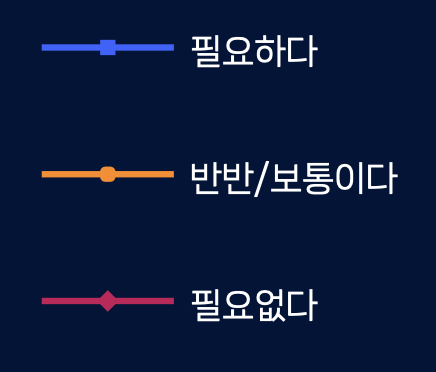[25th Peace Studies Forum] A Year in Ulsan with Afghan Refugees
- Date: Wednesday, June 26, 2024, 17:00-18:30
- Venue: Online Video Conference (ZOOM)
- Presenter: Kim, Young Hwa (Journalist, SISA IN)
- Chair: Kim, Boo-yuel (Professor, Graduate School of Environmental Studies at Seoul National University)
- Theme: A Year in Ulsan with Afghan Refugees
The Institute for Peace and Unification Studies at Seoul National University (IPUS at SNU) held the 25th Peace Studies Forum on Wednesday, June 26, 2024, under the overarching theme of ‘Peaceful Coexistence: Post-Division and Multiculturalism.’ The forum featured a discussion led by Journalist Kim, Young Hwa from SISA IN under the main topic ‘A Year in Ulsan with Afghan Refugees.’ Kim, Boo-yuel, Professor of the Graduate School of Environmental Studies at Seoul National University, chaired the forum, opening the event with welcoming remarks.
In this forum, Kim looked at the integration of migrant neighborhoods in Ulsan’s Dong-gu district and discussed the implications of this for Korean society, as migration and immigration are still at the center of conflicts and coexistence know-how is not being recorded. Looking back on her experience reporting on migrants, Kim said, “I saw a lot of negative public opinion in Korea about migrants and immigration, and I was more concerned about the fact that it was a problem that would happen more frequently in the future.” “South Korea is gradually becoming a multicultural society, with the proportion of foreigners living in the country reaching 4.89% of the population in 2023, but the ‘absence of politics’ has led to conflicts over migration, such as Yemeni refugees in 2018 and the opposition to the construction of a mosque in Daegu in 2021.” On the other hand, Kim emphasized, “The case of the late Ulsan Superintendent of education Roh Ok-hee, who sent out an inclusive message to Afghan refugees, is significant.”
“The case of the Afghan special contributor’s resettlement in Ulsan initially seemed to follow a similar pattern to the previous case, but looking back on it a year later, it did not turn into a serious conflict compared to the initial backlash,” Kim emphasized. “This was largely due to the close cooperation between Hyundai Heavy Industries(HHI), the Ulsan Dong-gu Multicultural Center, and the Ulsan Office of Education,” said Kim. According to Kim, “The Ulsan Office of Education established a communication council with parents to maintain smooth communication, and continued its active administration by organizing a special Korean language class for the children of Afghan donors.” “HHI provided them with living space and bus transportation, and the Multicultural Center provided education and counseling programs to help them adapt to life in Korea,” Kim said. “When each entity does its best to play its part, conflicts and discord related to multiculturalism can be resolved,” Kim emphasized.
Citing statistics from the 2021 National Multicultural Acceptance Survey conducted by the Ministry of Gender Equality and Family, Kim said, “While the general public’s multicultural acceptance is declining, it is encouraging that the youth’s multicultural acceptance is relatively high.” In particular, “the ‘willingness to engage in interaction behavior,’ which indicates the willingness to engage in social relationships, was significantly higher among youth compared to adults,” and argued that “it is important to create a ‘place where people can naturally interact,’ such as in the case of Ulsan, to create unity.” She also quoted U.S. Senator John Ossoff of Georgia in a documentary about the writer Minjin Lee, emphasizing that “Korean society still focuses on ‘how well they have adapted’ or ‘how useful they are to us’ when evaluating migrants or immigrants, and this attitude needs to change.”
Finally, based on her on-the-ground experience, Kim presented the implications of a year in Ulsan for Korean society, emphasizing that “it is important to make sure that the case of Ulsan does not end up being a single miracle or a single story.” “The biggest reason for the increasing dropout rate of children from migrant backgrounds is related to ‘language maladjustment,'” Kim said, emphasizing the need for systematic support for Korean language education, such as running special Korean classes for immigrants and refugees, as in the case of Ulsan. “Conflict itself is natural,” Kim said, pointing out that “the more important issue is whether there is a ‘message of inclusion’ to calm anxiety and the role of politics and local communities to resolve conflict.” “For Korea, which is heading toward a multicultural society, the experience of Ulsan is a ‘preview of the future,'” Kim said, emphasizing that “we need to recall the words of the late Ulsan Superintendent of Education Roh Ok-hee that ‘learning happens in unfamiliar places.”

